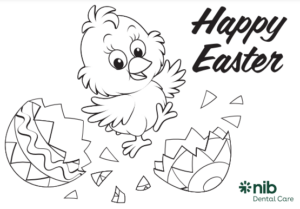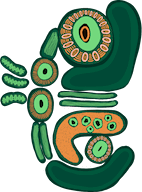Try our healthier Hot Cross Bun recipe
Are you a fan of hot cross buns? Consider making a healthier version of hot cross buns at home using whole wheat flour, dried fruits, and nuts. You can also reduce the amount of added sugar in the recipe or opt for natural sweeteners like honey or maple syrup.
Ingredients
1 ½ cups skim milk
7g dried yeast
2 tbs maple syrup (plus extra to glaze and serve)
3 ⅓ cups plain wholemeal flour (plus extra for dusting)
⅓ cup traditional rolled oats
1 tbs ground cinnamon
1 tbs mixed spice
¾ cup mixed dried fruit
1 tsp vanilla extract
5ml olive oil cooking spray
smooth light ricotta (to serve)
Step 1
ACTIVATE YEAST: Microwave milk in a heatproof jug on high for 30 seconds or until just warm. Add yeast and syrup, stirring to combine. Set aside for 10 minutes or until frothy.
Step 2
MAKE DOUGH: Place flour, oats, cinnamon, mixed spice and fruit into the bowl of stand mixer fitted with a dough hook. Make a well in the centre and add yeast mixture and vanilla. Mix on medium speed for 4 minutes or until dough is smooth and starts to come away from the side of the bowl. Cover and set aside in a warm place for 1 hour or until doubled in size.
Step 3
SHAPE BUNS: Spray a 21 x 30cm pan lightly with oil. Punch down dough to remove excess air, then place on a lightly floured surface and knead briefly until smooth. Divide dough into 12 portions, then shape each portion into a ball. Place in pan, then cover and set aside in a warm place for 45 minutes or until doubled in size. Preheat oven to 180°C/160°C fan-forced.
Step 4
MAKE CROSS MIXTURE: Combine flour with 1/4 cup water in a small bowl, then mix to a smooth paste. Transfer cross mixture to a piping bag fitted with a 2mm round and pipe onto the bun dough.
Step 5
BAKE: Bake for 30 minutes or until golden and cooked through. Brush tops with a little extra syrup to glaze. Serve topped with ricotta and extra syrup.Enjoy your Easter weekend without sacrificing your healthy smile. If it’s been more than 6 months since your last check-up, book an appointment to see your dentist and keep on top of your oral health.
Download our Easter colouring-in.

https://www.woolworths.com.au/shop/recipes/healthier-hot-cross-buns
